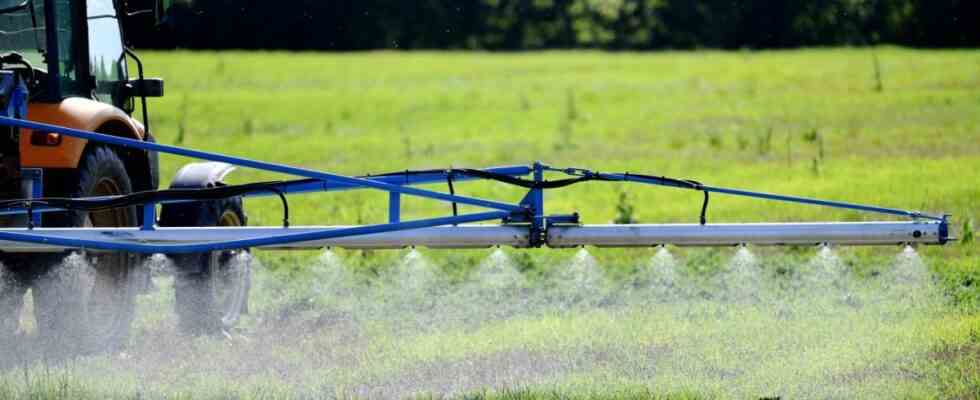When the Goldsteig dairy in Cham, Upper Palatinate, banned its 2,650 dairy farmers from using glyphosate on their meadows and fields four years ago, it received a lot of praise and recognition. Although the criticism of the controversial crop protection product has not stopped since then and there are plans for a ban from 2023, the company has now lifted the requirement again. In a letter to his dairy farmers, Goldsteig cites the war in Ukraine and the associated increase in the price of feed, concentrated feed and fertilizer as the reason. By suspending the ban, you are making a “relief contribution,” the letter says. Goldsteig managing director Andreas Kraus confirmed in a local newspaper that one had to react “to the dramatically changed times”. The farmers should be able to stabilize their yields with the current “price explosions”.
Sharp criticism comes from the Bund Naturschutz (BN). “The dairy is breaking the promise it made to consumers, which it made public,” says BN boss Richard Mergner. “The reasons are flimsy.” If the company really wanted to support its milk suppliers, it could increase the price paid for the milk supplied instead of “encouraging them to behave in a way that is harmful to the environment”. After all, they have managed without glyphosate for the past four years. In addition, the BN calculates that the suspension of the requirement will not bring any real financial relief to farmers. Mechanical weed killers such as fine cultivators consume more diesel. But the additional 20 to 30 euros in fuel costs per hectare of agricultural land correspond almost exactly to the hectare costs for the pesticide. Nothing has been gained financially for the farmers.
Glyphosate is the most widely used herbicide in agriculture. In Bavaria it is used on 240,000 hectares or eleven percent of the agricultural land every year. Glyphosate is suspected of being able to cause cancer and is held responsible for the loss of species in plants, microorganisms and above all birds. The skylark, the yellowhammer, the partridge and many other species lose their food base as a result of its use. Glyphosate residues can now be found in streams and lakes, but also in foods such as beer and bread. According to its own statements, the Goldsteig dairy processes around one billion liters of milk a year, employs 760 people and recently had an annual turnover of 537 million euros.

